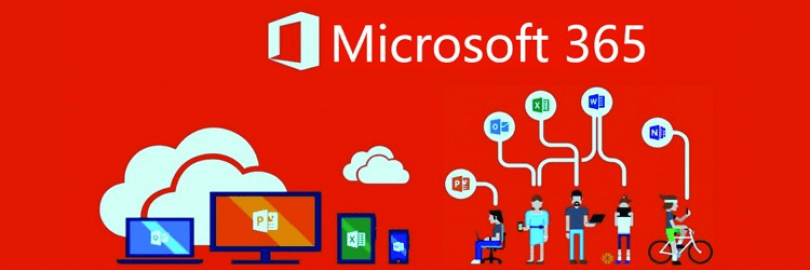
Microsoft 365 Business Premium vs. E3 vs. E5: Full Comparison & Verdict 2025
Quick overview of all Microsoft 365 & Office 365 plans
Microsoft has changed the names of most plans to Microsoft 365 but also kept partially the Office 365 label.
The following table lists the categories of these plan options and who they are intended for:
Money Saving Tips First:
You can save up to 100% on online shopping at home and abroad!
Such a high amount of cash back comes from Extrabux (What is Extrabux?), it also offers coupon codes and recent promotions, and brings together 10,000+ sites (US, China, UK, Japan, Australia , Germany, France, Italy, etc.).
Just sign up for an Extrabux account and earn exciting cash back every time you place an order via the relevant link. Sign-Up Bonus: Join for FREE & Earn $20 Welcome Bonus today! Then earn $5 Friend Referral Bonus!
Whether you are buying cheap domestic products, international luxury goods, or buying mobile phones, computers, refrigerators, washing machines, clothes, shoes, bags, mother and baby products, snacks, drinks, or booking air tickets, hotels, car rentals, or buying services and memberships , you can save money on all related purchases - save $1,000 a year!
What is Microsoft 365?
Microsoft 365 is a subscription that includes the most collaborative, up-to-date features in one seamless, integrated experience.
Microsoft 365 is an all-encompassing package that includes Office 365, Windows 10, and Enterprise Mobility + Security.
What is Office 365?
Office 365 is a Software as a Service (SaaS) solution that contains the same core desktop applications as the traditional versions of Microsoft Office, such as Word, Excel, PowerPoint and Outlook, as well as a suite of other apps and online services for cloud file storage, secure communication, and collaboration. Tools such as Planner, OneDrive, Exchange, SharePoint, Yammer and Microsoft Teams all come together to provide an unparalleled user experience.
What’s the difference between Office 365 and Microsoft 365?
The easiest way to explain the difference is that Office 365 is part of Microsoft 365 and with the latter you get security tools and your operating system added in.
Which Microsoft 365 plans are available for companies?
Microsoft 365 (previously known as Office 365) takes the best-in-class Office apps and adds powerful cloud services, device management, and advanced security to become a productivity cloud for your business. Whether your business is small or an enterprise, Microsoft offers a variety of plans that best fit your needs.
We can immediately narrow it down to just Business and Enterprise.
The range of licenses in Microsoft 365
To cut to the chase, there are 6 licenses that stand out for companies or organizations. They are the following:
Microsoft 365 Business Basic – $6 per user per month.
Microsoft 365 Business Standard – $12.50 per user per month.
Microsoft 365 Business Premium – $22 per user per month.
Microsoft 365 F3 – $10 per user per month.
Microsoft 365 E3 – $36 per user per month.
Microsoft 365 E5 – $57 per user per month.
The top three are the Business plans, and the bottom three are the Enterprise plans.
The Business series consists of licenses for companies with less than 300 users. For an unlimited number of users, you can go for the Enterprise series.
Has the price of Microsoft 365 increased?
Yes. The March 1, 2025 price increase has been Microsoft’s first major price change in over a decade. Here is an outline of the planned price increases in each of these categories:
Microsoft 365 Business
Microsoft 365 Business Basic: $5 to $6
Microsoft 365 Business Premium: $20 to $22
Office 365/Microsoft 365 Enterprise
Office 365 E1: $8 to $10
Office 365 E3: $20 to $23
Office 365 E5: $35 to $38
Microsoft 365 E3: $32 to $36
These increases will apply globally with local market adjustments for specific regions.
Is it still worth buying after Microsoft's price increase?
While most people don’t fancy the price increase, one potential positive caveat from the price hike is that Microsoft will continue paying attention to the value its lower-tiered licenses deliver. Additionally, the company will continue to enhance these tiers and safeguard them from ever-evolving cybersecurity threats.
If you’re currently purchasing, there will be promotions available through June 2025 to help you move and save money.
Going a step further, whenever you buy Microsoft software and hardware, you'll have access to up to 7% cash back in Microsoft Store via Extrabux.
A wide array of choices can become overwhelming
Business and Enterprise – two words often used interchangeably in everyday life, except when it comes to Microsoft Apps.
That’s because there are clear differences between Microsoft 365 Apps for Business and Microsoft 365 Apps for Enterprise.
All three tiers in Business and Enterprise come with web versions of Outlook, Word, Excel, PowerPoint, and OneNote. Users can have these apps available on up to 5 phones and five tablets (iOS and Android).
However, only Standard and Premium (Business) and E3 and E5 (Enterprise Office 365) also include desktop versions. Access and Publisher are only available on desktop, so if you need either of these apps, you’ll need a plan that isn’t Basic or F3.
What is Microsoft 365 Business? How are the plans different?
Microsoft 365 solutions which are a perfect fit for any growing business. Helping you keep track of your customer interactions and allowing you to nurture those valuable relationships. Analyse customer details and history to make informed business decisions, and monitor in-progress deals and pending tasks. All of this made possible with Microsoft 365 Business solutions.
Today, you can choose from Basic (formerly Office 365 Business Essentials), Standard (formerly Office 365 Business), and Premium (formerly Office 365 Business Premium).
What is the difference between Microsoft 365 Business Basic, Standard, and Premium? The biggest difference lies in the availability of desktop applications and security features.
Let’s start off by comparing what’s in the Business packages. Microsoft has their own comparison table here if you want to follow along at home.
Microsoft 365 – Business Basic (Starting At $6.00/User/Month)
Formerly known as Office 365 Business Essentials, the Microsoft 365 Business Basic is a simple and efficient package to consider for a remote solutions. The only downside to this plan is that the office applications are not available to download on your desktop, but can be accessed 100% online from any web browser. With simple and lite usage, you can perform many of your basic office tasks while still meeting all your productivity needs. As an added feature, you all also receive access to OneDrive, SharePoint, and a mailbox with 50GB of space. With a low monthly fee, users get to take advantage of all the benefits of Microsoft 365 like cloud storage and file sharing.
Microsoft 365 – Business Standard (Starting At $12.50/User/Month)
Formerly named Office 365 Business Premium, this plan offers everything a small business needs for their day to day operations, which is one of the reasons it is referred to as the “Business Standard.” You receive desktop versions of the Office Applications and a full installation of these applications on five mobile devices, five tablets, and fives PC’s or macs, per user. In addition to your subscription, you will receive access to a few online business applications such as Outlook Customer Manager, Microsoft Teams Shifts, Microsoft Bookings, Microsoft Invoicing, and MileQ. These are only available with the Microsoft 365 Business Standard subscription.
Microsoft 365 – Business Premium (Starting At $22/User/Month)
Formerly known as Microsoft 365 Business, this plan offers everything included in the Business Standard package, but offers an enhanced security plan geared towards the remote workforce. These additional security layers help protect against sophisticated threats hidden in email attachments and links, ransomware, and other advanced malware attempts with Microsoft Defender for Office 365. It also allows businesses to remotely wipe company data from lost or stolen devices.
Microsoft 365 Apps For Business (Starting At $8.25/User/Month)
This plan is best for small businesses with heavy file storage and sharing needs, and those not interested in moving their email to Microsoft’s servers. Each user has access to 1 TB of storage. Like the rest of the plans, you will receive access to all the Office Desktop apps, with the option to install these applications on five devices. However, SharePoint, Microsoft Teams, Business emails, or Bookings are not included in this subscription.
Microsoft 365 Business vs. Enterprise
Microsoft 365 Enterprise is created for large organizations and combines Office 365 Enterprise, Windows 10 Enterprise, and Enterprise Mobility + Security, allowing employees to securely collaborate and work together. On the other hand, Microsoft 365 for Business is designed for small to medium-sized businesses and integrates Office 365 Business Premium with tailored security and management features from Windows 10 and Enterprise Mobility + Security.
What's the main difference between Business Premium and Enterprise?
Microsoft 365 Enterprise comes with services such as SharePoint, Teams, Exchange as it is geared toward large scale operations with a global framework. It also includes larger storage space for OneDrive and mailboxes. It also comes with communication, conferencing and analytics tools, planners and advanced threat protection.
Microsoft 365 Business Premium does not include the above services as it is aimed primarily at smaller businesses with fewer team members.
Should I choose Microsoft 365 Business Premium or Microsoft 365 E3?
You've decided to use Microsoft 365 and the Azure cloud for your business. Congratulations. You’ve made a great choice.
When it comes to choosing a plan, while the options are numerous, ultimately, we find that Business Premium and E3 give companies the best package of features.
Microsoft 365 Business Premium is Microsoft 365’s top offering for small to medium-sized businesses, an upgrade on its Business Basic and Business Standard offerings. Microsoft 365 E3 is Microsoft 365’s initial enterprise plan, coming in as the second-most loaded plan, feature-wise, behind E5.
Why Business Premium and E3? Because they provide so many features that make your cloud experience better.
The key feature that makes these plans elite is Microsoft Intune, which controls access for mobile devices, including smartphones, tablets, and laptops.
It also allows managers to set additional security measures on non-company devices and limits on what remote workers can access.
So why does that make Intune a gamechanger?
Anyone who has had to set up a new computer or smartphone has likely had to spend hours customizing their settings, restoring files, and remembering passwords.
Those days are in the past with Intune, which allows you to create a default image for deployment. When you set up a new computer, Intune allows you to hit the ground running without wasted time.
Paired together with Azure Active Directory, Intune eliminates the need to run your own server.
With top-shelf identity management and endpoint management in the cloud, Intune and Azure AD makes on-premise identity and endpoint management redundant.
With no hassle and no server, Intune saves time and money that you can allocate elsewhere.
If you already have a server, Intune and Azure AD are still compatible with your environment.
Additionally, with Azure sync, you can marry your on-premise and cloud servers to create a hybrid setup, the ultimate option for your IT.
Beyond Intune, there are other features available in both Microsoft 365 Business Premium and Microsoft 365 E3 that make them stand above the less-expensive plans.
Both plans come with Microsoft’s best-in-class communication hub, Microsoft Teams, as well as SharePoint Online and Planner.
Both Business Premium and E3 come with Litigation Hold and eDiscovery, which are important features that protect your business from losing data that is critical to any legal proceedings. Although, Business Premium may run into storage issues if Litigation Hold is used to freeze too much data.
Microsoft 365 Business Premium vs Microsoft 365 E3
As you can see, Microsoft 365 Business Premium and Microsoft 365 E3 share many of the same features, with some exceptions. On-premises controls and rights, OneDrive availability, and security are the main differences between the plans.
Furthermore, Business Premium users get 50 GB of mailbox storage and 1 TB of OneDrive storage, whereas E3 users get unlimited mailbox and OneDrive storage.
Now, let’s look at some of what E3 has to offer that Business Premium does not.
Security
The real value you get with Microsoft 365 E3’s price increase is its extra security features, which are expansive. E3 comes with Microsoft Advanced Threat Analytics (ATA), Credential Guard, App Locker, Windows Information Protection (WIP), and the full version of Azure Active Directory.
E3 also comes with the ability to encrypt emails with the click of a button. This ensures that sensitive information is opened by the intended receiving party, who must log in with a Microsoft or business account.
Microsoft 365 Business Premium only comes with Microsoft Defender for Office 365 (formerly known as Advanced Threat Protection).
Below are the security tools M65 E3 offers:
Microsoft Advanced Threat Analytics (ATA) – This is an on-premises service that provides a deep later of protection against cyber-attacks and threats from within a business.
Device Guard – A tool that combines hardware and software enterprise-grade security that can lock down devices to only run trusted apps. Customers can customize and define which apps to lock.
Credential Guard – Adds protection for customer secrets and key systems.
App Locker – Creates a control center for applications where admins can decide which apps and files can be run across and organization.
Enterprise Data Protection – Protects against the unintentional or malicious use of data by allowing users to run both enterprise and personal use without data being compromised between the apps.
Azure Active Directory, Conditional Access – Companies can create automated access conditions s for employees seeking cloud app access.
If you are not as worried about your security, consider some of the other features of Microsoft 365 E3 that you may miss out on with Microsoft 365 Business Premium.
One big perk of E3 is the ability to access the Microsoft Office suite via a remote desktop, meaning you can deploy its productivity apps to shared computers in your company.
The ability to activate shared computers remotely also comes with E3. With remote desktop services, every user on your shared computer can continue to work on their files.
Also exclusive to enterprise plans is Azure rights management, which protects data that is shared externally. When protected files are emailed to another company, the protection stays on the file.
Like Litigation Hold and eDiscovery, Azure rights management is imperative for compliance and may be required.
E3 further solidifies your compliance with data loss prevention (DLP). If your business handles sensitive, proprietary, or customer data, DLP can identify and protect it from being shared. Using “deep content analysis” and data-matching through keywords, DLP will display a pop-up notification that warns users before sharing flagged data.
Other enterprise-only features include Excel PowerPivot, and PowerQuery, as well as Infopath, an application for distributing and submitting electronic forms. In-place archiving for Exchange is also limited to enterprise.
Overall, Microsoft 365 Business Premium gives your business everything it needs to operate and grow. That’s why we recommend it to all our customers.
Safety and security are a must for modern companies, however, and if your business is handling sensitive data or has stringent compliance regulations – Microsoft 365 E3 may be your best option.
The Microsoft 365 Enterprise plans are for organizations with more than 300 employees, but employee numbers shouldn’t be your only deciding factor. It’s true the rule is that if you have more than 300 employees, then you must choose either the Microsoft 365 E3 or E5 plan. But there’s no rule saying a company with fewer than 300 employees can’t choose either the Microsoft 365 E3 or E5 plan—in some cases, it’s more cost effective for SMBs to have the Enterprise solution.
One of the key reasons that SMBs choose the Microsoft 365 E3 and E5 plans over the Microsoft 365 Business plan is Enterprise Mobility and Security (EMS). Previously available an add-on for Office 365, EMS is built into the Microsoft 365 E3 and E5 plans. The core technology behind EMS hardens employee account access to company data based on their role in your organization. EMS is valuable because it enables users to securely work from multiple devices and access shared cloud-based resources via identity-driven security that is easily administered across your organization via centralized policies.
Another reason some SMB clients consider the Microsoft 365 Enterprise E5 plan is the inclusion of the cloud-based Phone System feature. For organizations with workers that spend a lot of time on voice calls to customers, the Phone System feature is a must have—essentially replacing your company’s business phones while adding rich audio conferencing and online collaboration features to Microsoft Teams. Just like EMS, the Phone System feature was an add-on for certain Office 365 plans (and for Microsoft 365 for Business) but comes integrated with the Microsoft 365 Enterprise E5 plan. As previously mentioned, for some organizations discover it’s more cost effective with lower TCO to buy the Microsoft 365 bundle with Phone System and EMS features built in rather than getting the “cheaper” plan then paying for add-ons.
How Microsoft 365 Enterprise's plans are different?
Microsoft 365 Enterprise is ideal for any established company with large with ever expanding teams. Offering a wealth of applications and services with security at the forefront, it allows your employees to express new levels of creative endeavour.
Much like Business, Enterprise has three different packages.
Enterprise F3 is the most limited of the Enterprise packages, and it’s almost surprising how limited.
F3 includes the web-based versions of Office, as well as the mobile app versions, but does not include desktop versions. F3 also includes Outlook and Exchange, but not Bookings. More importantly, F3 is limited to just a 2GB inbox and has no Outlook integration for Exchange, and no Voicemail system.
F3 has Teams access, but does not do audio calls and does not have access to the phone system expansion. It also has SharePoint, but does not allow Site Mailboxes, personal sites, or forms, and has a limit of 2GB per user and 10GB of shared space.
F3 also gets access to Yammer, OneDrive, Stream, and Sway. On top of that, you have access to Power Apps, Power Automate, Planner, and To Do for task management and business processes.
For device and app management, all enterprise versions have Windows Enterprise, the Microsoft 365 Admin Center, Intune, Autopilot, and Endpoint Configuration Manager. They also all get Windows Hello, the Credential Guard, and Direct Access, plus access to the Azure Active Directory Premium plan. Threat protection includes Advanced Threat Analytics and Windows Defender.
Finally, all Enterprise versions get BitLocker, Azure Information Protection P1, Microsoft Secure Store, and the Security and Compliance Center.
So what makes E3 and E5 stand out? They get everything that F3 gets, after all.
They also both get:
Desktop versions of all of the Office apps, and up to 5 devices per user similar to the Business plans.
Access to Bookings for appointment and meeting management features.
Access to MyAnalytics, part of Microsoft’s productivity tracking and insights platform.
Microsoft 365 Data Loss Prevention.
Some higher caps on things like Email data storage.
And, of course, the E5 plan has some additional features only the top-tier Enterprise plan gets.
Access to the audio calls and phone system portions of Teams.
Power BI Pro, another part of the productivity and analytics platform.
Access to the other Azure Active Directory Premium plan.
Advanced threat protection in Microsoft, Microsoft 365, and Azure.
Cloud app security features and control.
Advanced compliance control with eDiscovery, Customer Lockbox, Data Governance, Service Encryption, and Privileged Access Management.
Microsoft 365 E3 vs Microsoft 365 E5
Once you’ve decided to go for the Microsoft 365 Information Worker plans, you need to choose which plan (E3 or E5) suits your business requirements.
E3 offers basic solutions, such as Outlook, Word, OneNote, PowerPoint, and Excel for $32 per month. It also provides access to SharePoint Team sites, video conferencing, and Yammer for social media for businesses.
E5, on the other hand, provides all E3 features together with unified communications, PowerBI, Microsoft Defender, Application Guard, and Safe Documents. It also comes with more cloud security tools, risk-based conditional access, privileged identity management, and both automatic and machine learning-based sensitivity labels. E5 costs $57 per month.
Small- and medium-sized businesses often select E3 and subscribe to third-party applications for their cloud security and VoIP needs. But for more robust data management and security requirements, the E5 plan is the way to go.
Microsoft 365 Business Premium vs. E3 vs. E5
Microsoft 365 the top business productivity platform worldwide, providing organisations access to these suites of tools and services at a cost-effective, per user per month fee.
For companies that want to upgrade their Windows operating system and cloud security, they are always hesitant between these three plans.
Selecting the right Microsoft 365 plan for your business may seem a little confusing due to the multiple options, tons of details, and the features that look similar for most. To help you choose the business tools you need and make the correct choices, we’ve created a basic table below to list out the details of each plan structurally and their comparisons.
Microsoft 365 Business Premium All the features of Office 365 Business Premium, plus Windows 10 Professional subscription, mobile device and app management and advanced threat protection | Microsoft 365 E3 All the features of Office 365 Enterprise E3, Enterprise Mobility + Security E3 and Windows 10 Enterprise E3, including 100 GB Exchange mailboxes, Office 365 Data Loss Prevention and Azure Information Protection | Microsoft 365 E5 The complete Microsoft modern workplace solution, with Office 365 Enterprise E5 and Enterprise Mobility + Security to maximize security, productivity and manageability | |
Annual-term pricing available. | $22.00per user/month | $36.00per user/month | $57.00per user/month |
Maximum users per plan | 300 | Unlimited | Unlimited |
Windows Enterprise | Windows Professional Upgrade Rights | Windows Enterprise E3 | Windows Enterprise E5 |
Schedule & Task Management Microsoft StaffHub, PowerApps and Flow | |||
Device & App Management | Microsoft Intune | Enterprise Mobility + Security E3 | Enterprise Mobility + Security E5 |
Azure Active Directory | Core subset of Azure Active Directory features | Azure Active Directory Premium P1 | Azure Active Directory Premium P2 |
Windows Defender Advanced Threat Protection | |||
Cloud App Security Identify and combat cyberthreats with analytics | |||
Office Applications Install the latest Office on up to 5 PCs/Macs, 5 tablets and 5 phones per user *Microsoft Publisher and Access are only available on Windows devices. | Microsoft OutlookMicrosoft WordMicrosoft ExcelMicrosoftMicrosoft OneNoteMicrosoft AccessMicrosoft Publisher | Microsoft OutlookMicrosoft WordMicrosoft ExcelMicrosoft PowerPointMicrosoft OneNoteMicrosoft AccessMicrosoft Publisher | Microsoft OutlookMicrosoft WordMicrosoft ExcelMicrosoft PowerPointMicrosoft OneNoteMicrosoft AccessMicrosoft Publisher |
Collaboration Services Improve team collaboration with shared team sites, online meetings, chat, calls and more | Microsoft SharePointMicrosoft TeamsMicrosoft Yammer | Microsoft SharePointMicrosoft TeamsMicrosoft Yammer | Microsoft SharePointMicrosoft TeamsMicrosoft Yammer |
Unlimited 24x7x365 U.S.-Based Support Get help for any question or issue, no matter how big or small | |||
Free Email Migrations to Office 365 (up to 250 users) Let us help you plan and execute your migration to Office 365 | |||
Access to top tier Office 365 experts With hundreds of Microsoft Certified Professionals on staff, we're ready to help you get the most from office 365 | |||
Rapid Managed Escalation We work directly with Microsoft to resolve your problems quickly. | |||
Active Directory Integration Manage user credentials and permissions seamlessly | |||
Exchange Email Storage Enjoy business-class email, contacts and calendar | |||
OneDrive Storage Store files and access them from any device, anywhere | |||
Office Online Use Word, Excel and PowerPoint from your browser | |||
Delve Get personalized search and discovery across Office 365 | |||
eDiscovery Archive, search, analyze and package information for legal requests | |||
Archiving for Exchange Online-based Mailboxes Store, preserve and safeguard your email data | |||
Data Loss Prevention Address email security compliance, without hindering productivity | |||
Azure Information Protection Classify, label and protect your documents and emails | |||
Email Archiving Unlimited, enterprise-class email storage and retention | |||
Office 365 Advanced Threat Protection P1 Protect your mailboxes, files, storage and apps against advanced threats | |||
Office 365 Advanced Threat Protection P2 Keep your organization safe with intelligent data analysis to identify and respond to suspicious activity quickly | |||
PowerBI Professional Connect to hundreds of data sources, and visualize all your data with live dashboards and reports. Then share insights across your organization to fuel intelligent action. | |||
Audio Conferencing Enable attendees to join from any telephone via a local access number, in addition to single-touch join on PC, smartphone, and browser |
Which Microsoft 365 Plan is Right for Your Business?
Business Basic and Business Standard offer good functionality, but it lacks advanced security in both licenses. The main difference between the two variants is that with the Standard version you can use the desktop applications while with the Basic you are stuck with the web versions and mobile applications.
Microsoft 365 Business Premium brings a pleasant surprise. With its attractive price and advanced security features, it is a strong product. It competes directly with the pricier Enterprise E3. Microsoft Defender for Office 365 is not available in the E3, but it is in Business Premium. Interesting.
Does that mean the Enterprise E3 is losing the battle? Certainly not. Although the E3 is about twice as expensive, it has other advanced security features that the Business Premium does not. On top of that, it can be used for an unlimited number of users.
Last in line: Enterprise E5. For its higher price, you enjoy the most advanced security. The eye-catcher in this package is the automation with Artificial Intelligence (AI) that also takes action itself. For large companies with many users and a high need for security, this license is a winner.
FAQ - Microsoft 365
What is the New Commerce Experience (NCE)?
Microsoft has recently announced a change in how customers purchase and manage their licences through their Cloud Solution Provider (CSP) Program.
In January 2025, Microsoft is launching New Commerce Experience (NCE). This change will impact the way you purchase Microsoft 365 licences. But fear not. Microsoft has launched the NCE intending to reduce complexity and provide cost savings for long term commitments, whilst introducing additional features to make CSP a comparable alternative to the longstanding Enterprise Agreement (EA).
Monthly subscription
With the NCE you will have the ability to purchase your Microsoft 365 licences on a monthly basis without an annual commitment. Microsoft is now offering this to provide flexibility to customers that need to make monthly changes to their Microsoft 365 or Office 365 licences plans and seat count. This subscription does come at a 20% price increase across all licence plans.
12 month subscription
Through the NCE, you’ll have the opportunity to commit to your licences through a 12 month subscription. Unlike the legacy CSP model customers who consume on a 12 month subscription, you will have the option to be billed on a monthly or annual basis.
With the 12 month subscription, your pricing will be locked in for the entire term – allowing you to benefit from the additional cost savings of any price increases due in that time. This subscription will allow you to increase but not decrease the seat count.
36 month subscription
Microsoft is introducing a Multi Year Pricing to the NCE, allowing you to secure a 3 year pricing for longer term licencing commitments. With this subscription, you’ll have the option to be billed monthly, annually or upfront. This subscription will allow you to increase but not decrease the seat count.
If your organization uses Microsoft 365, depending on your existing plan and renewal date, you will eventually need to make a decision on how your organization will pay for Microsoft 365 licenses.
Here are the advantages and disadvantages you’ll want to consider before you enter the New Commerce Experience.
MONTH TO MONTH
Advantages
The major benefit to month-to-month is the flexibility. If your organization has seasonal workers or contractors, paying a 20% premium for a month-to-month subscription makes sense.
Disadvantages:
The obvious disadvantage is the 20% increase you’ll incur if you choose this option. Because the single recurring anniversary date is the 1st of each month, you only have 72 hours to receive a prorated refund. Once the 72 hours lapses, you’ll be billed for the full month.
ANNUAL
Advantages
Annual is the way to go for full-time employees simply for the 20% cost savings and the ability to lock in your price for 1-year. Also, having a single anniversary date per subscription makes it easier to budget and track your licenses.
Disadvantages
Once you’re locked into an annual agreement, you pay for all of the seats purchased for the full year. (Note that increased seats are permitted mid-term and will be prorated for the remainder of the term.)
3-YEAR
Advantages
The primary advantage of the 3-year term is the 20% cost savings and the ability to lock in your price for 3 years. We recommend this to organizations who have low employee churn rates.
Disadvantages
Like the annual plan, once you’ve committed, you’re locked in for 3 years and cannot decrease your number of seats until the remainder of that term.
Can I buy the Microsoft 365 components separately?
Yes, you can still purchase Windows OS, Office 365, and Enterprise Mobility + Security Suite a la carte.
However, it is more cost-effective to purchase Microsoft 365 Business or Enterprise SKUs as it already bundles several apps and solutions that would otherwise be more expensive when bought separately.
How much storage space do I get?
Microsoft 365 E3 and E5: 100 GB mailbox storage and unlimited cloud storage when there are 5 or more users. Otherwise, 1 TB cloud storage.
Microsoft 365 E1: 50 GB for mailbox storage and 1 TB of cloud storage.
What are Power BI, Yammer and Stream?
Power BI
A powerful tool that helps you visualise and share all your data through live dashboards and reports.
Yammer
An internal social media platform to keep your employees engaged on everything related to your company.
Stream
A video platform that enables you to integrate videos into the Office app suite. Offers live and on-demand functionality.
Defender
Formerly known as Advanced Threat Protection. Defender has evolved as a cloud-based security portal that protects your organization from advanced threats to email and collaboration tools. It achieves this by addressing 4 aspects: Protect, Detect, Investigate and Respond. Through the integrated Ai and automation, Defender can stop many attacks. For example, protection against Phishing, malware attacks and business emails being stolen. In addition, Defender can detect and investigate such threats, allowing us to identify them better and respond faster. Using built-in queries or self-created queries, we continue to look for threats within the organization. With the recommendations within the portal, we take action ourselves against advanced attacks. Defender is in the Cloud, so it works across multiple domains making everything easier to monitor and manage.
Azure Information Protection (AIP)
With this tool we manage and secure our emails, documents and sensitive data that we share outside the company. For example, you assign a label to a document and you can then determine the level of sensitivity. With AIP you can secure documents with credit card numbers so that only authorized people can access them. Secured documents can be stored in OneDrive, your local PC or a USB. The security is stored on the document itself. When you then want to send or share these with external parties, a warning will be given. If the other side then wants to access this document, they must log in with an authorized login with for example Multi-Factor Authentication (MFA). With this tool, you can be sure that your company data stays in the right place. A Managed IT service provider like Safe-Connect can use the powerful logging and reporting to protect, analyze and handle data.
Conditional access
Company data is of high importance. With conditional access, you create policies and define them to your needs. These rules relate to login events. When a user wants to log in to access certain documents or environments, additional actions will be requested before a user can access an application or service. Multifactor Authentication (MFA) is a good baseline for increasing security. But you can also, for example, specify that a user can only log in in a specific country or on specific IP addresses. In this way you create different layers of security within your internal environment.
Intune
Intune is a cloud-based service with focus on Mobile Device Management and Mobile Application Management. With Intune we configure specific policies to manage applications on mobile devices such as: laptops, cell phones and tablets. This way, we prevent emails from being sent to people outside the organization, for example. It also helps to isolate corporate data from personal data. For example, if a mobile device is stolen, Intune can prevent access to corporate data on that device.
Azure Virtual Desktop
Azure Virtual Desktop is located in the Cloud. This technology allows you to connect to a virtual desktop on multiple devices where all your programs and settings needed for your work are available. Because it works completely in Cloud, the security is a lot higher than a physical computer. This way, you can work remotely in a secure way within your trusted environment.
Are my Windows 7 and Windows 8(.1) devices also transferred to Windows 10 Enterprise?
Yes, if you are taking Microsoft 365 Enterprise E3 or E5, an upgrade for your device to Windows 10 Enterprise is included. For Microsoft 365 business, this is Windows 10 Pro.
Is there a free trial for Microsoft 365?
Yes. The free version of Microsoft 365 (for select packages) is available for 30 days and allows you to create accounts for 25 users. If you choose to purchase licenses for the accounts created, all settings, files, and other information will be retained. Once your free trial period expires, you will have 30 more days to purchase Microsoft 365 before all data is deleted.
Try Microsoft 365
If you are also looking for a laptop, there are two nice deals on Amazon!
1. Microsoft Surface Pro 9 (2022):$844.99!

2. Microsoft Surface Laptop 5 (2022):$2,055.99!
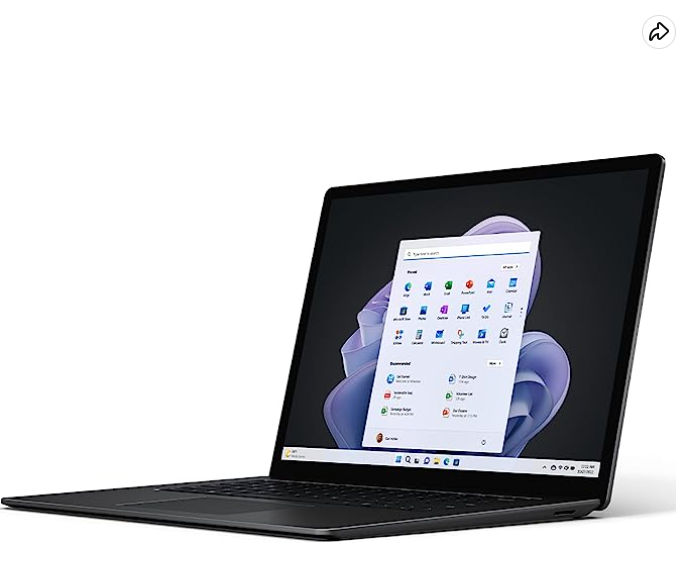
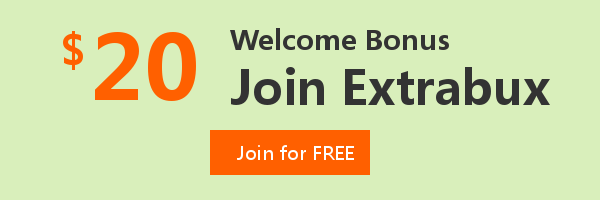
Extrabux is an international cashback shopping site, offering up to 30% cashback from 10,000+ Stores!
Squarespace, SkinStore, MATCHESFASHION, The Wall Street Journal, NordVPN, Visible, Armani Exchange, Sam's Club, PUMA, AliExpress, Card Cash, NET-A-PORTER, Udacity, Udemy, Selfridges, LOOKFANTASTIC, Vimeo, Coach Outlet, lululemon, PrettyLittleThing, Booking.com, Ripley's Aquarium, iHerb, Groupon, etc.
Join to get $20 welcome bonus now! (How does Welcome Bonus work?)
Recommendation
-

Is Turkish Airlines Good for International Flights?
-

10 Best & Stylish Winter Coats for Women on NET-A-PORTER in 2025
-
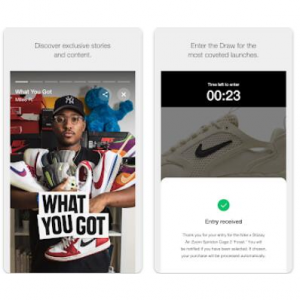
Top & Best 12 Sneaker Apps/Websites for Raffles, Releases & Restocks in 2025
-
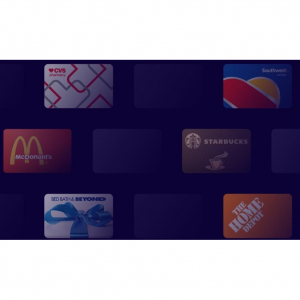
7 Best Gift Card Exchange Sites - Buy, Sell and Trade Discount Gift Card Safely and Instanly!
-

Top 9 Professional Skincare Brands for Licensed Estheticians 2025










